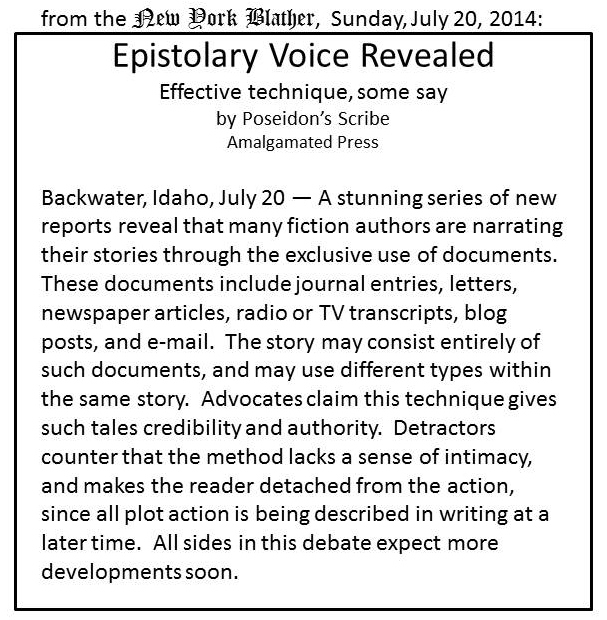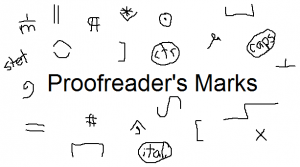What’s a POV Wobble? Why should you dread it? What happens if you encounter it? How can you avoid it?
 Four vital and weighty questions. An average blogger would shrink from the challenge of answering them all in one short post. But you’ve surfed to no ordinary website. I laugh at such challenges, or at least chuckle in a menacing way.
Four vital and weighty questions. An average blogger would shrink from the challenge of answering them all in one short post. But you’ve surfed to no ordinary website. I laugh at such challenges, or at least chuckle in a menacing way.
I’ll assume you understand Point of View (POV) already, perhaps by having read this, or some lesser source. The phenomenon of POV Wobble is when the writer shifts to a different character’s POV without a break in the narration. Here’s a blatant example:
Jetta stared at Cliff over the breakfast table and wondered if he was still happy with their marriage. Cliff thought she must have forgotten he preferred grape juice over orange juice.
That’s not so much a POV wobble as a POV fall flat on your face. We shifted right from Jetta’s mind to Cliff’s mind in the same paragraph. Here’s another example:
Jetta looked up toward the window as she heard a loud, warbling sound from outside. Neither she nor Cliff could have known an alien spaceship had landed in their back yard, nor understood then the consequences for the human race.
Not only did we leap from just Jetta’s mind to encompass both hers and Cliff’s, but that’s very poor foreshadowing, too. Here’s more:
Her heart pounded. Jetta heard the creak of the outside stairs and sensed the grip of the alien’s hand on the kitchen doorknob.
Sure, she knows when her heart is pounding, and she can hear noises. But she can’t sense anyone else’s hand on a doorknob. Another example:
Jetta and Cliff edged their way to the kitchen’s far side, afraid of making any noise. Flat against the wall, Jetta stood with her hand to her mouth, ready to scream, appearing as if posed for a horror movie role.
Here, the first sentence states they’re both afraid, but we shouldn’t know about Cliff’s fear since we’re not in his POV. In the second sentence, we’re seeing Jetta from the outside, posing, which she couldn’t see unless by reflection in a mirrored surface.
The trouble with POV wobbles is, they mark a shift from third-person limited to third-person omniscient. In other words, you’ve gotten the reader comfortable with being in one character’s head, and then suddenly you lift the veil and reveal stuff that character can’t know. You bounce the reader (maybe only briefly and with subtlety) into another character’s head.
It’s possible some readers won’t notice, or will notice but remain unbothered. Why take the chance? First of all, an editor may catch it and that POV wobble might be enough to get your story rejected before a paying reader even sees it.
You’re thinking, “This seems pretty basic stuff. The POV wobble thing will be easy to avoid. I’ll never fall in that trap.”
Good luck. POV wobble is a sneaky problem. As an author, your aim is to tell a story, to provide maximum emotional response in the reader. It’s too easy, as you’re writing along, with your godlike knowledge of the plot and all characters, to forget (even for a moment) that you’re conveying the story—or at least the chapter—from the limited POV of one character alone.
Someday you’ll want the reader to know something the POV character can’t know. Or you’ll need to describe something the POV character can’t sense.
Avoid POV wobble by (1) choosing your POV character wisely, (2) concentrating on staying in that character’s head. Really put yourself in that character’s mind, and (3) making it obvious as soon as you shift to a new character’s POV, at the beginning of a chapter or after a section break.
You’ll find more great info about the POV wobble phenomenon here, here, and here. That’s it, from a blogger who will never go wobbly on you—
Poseidon’s Scribe




